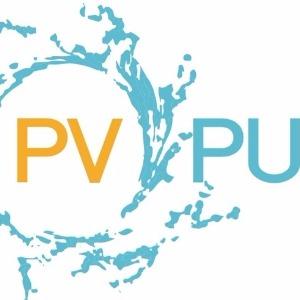Please find below the
Finalist Evaluation
Judges'' ratings
| • | Novelty: | |
| • | Feasibility: | |
| • | Impact: | |
| • | Presentation: |
Judges'' comments
This proposal has practical applications in many settings around the world, however, environmental and social safeguards should be applied while extracting water. Freshwater biodiversity and access of local poor has suffered when the water is used for commercial production of bottled water in many instances in developing and water scarce countries.
Although this is a valuable concept, but it's not clear what the project's link is to adaptation to climate change. The proposers haven't fully answered the judge's concerns in the first round - and perhaps it isn't possible to do so. Their question was around the extent to which this is still at the proof of concept stage. This seems to be a tried and tested technology which has been trialled with some success in Mexico. So why isn't it out there being taken up by disaster relief agencies and by aid agencies seeking to install low-cost systems in remote locations?
Furthermore, it would help to have some insights into how the system works, as well as an analysis of which parts of the world (which currently do not have access to universal clean, safe water) have both the solar conditions and access to ground or surface water to make this feasible. Some consideration should be given to who should take these actions / who will own these systems / how users will be trained.
If they are comparing the impact of bottled water in hotels, they need to be solving for that problem (too). But they present themselves as a rural solution where energy is not available and neither is clean water. It would help if they made it clear that clean water sources are going away as climate change worsens. It seems the issue with urban water has more to do with poor infrastructure and planning then it does with climate change - at least based on the limited information about the nature of that problem in this proposal. Rather than the hotel distraction, how much money are poor folk spending on bottled water and water-borne disease. That would be a good measure to have. We bet it is more than fuel. Then, how much will this technology save the communities? The issue of the cost of the system could potentially be solved by a community pay into a kitty (after the fact) for all the bottles of water they are no longer buying.
Semi-Finalist Evaluation
Judges'' ratings
| • | Novelty: | |
| • | Feasibility: | |
| • | Impact: | |
| • | Presentation: |
Judges'' comments
This sounds good and pilot-tested. The argument has been put forward very well. It’s a bit confusing why this project is not able to generate required funding if it is as good as it sounds. There could be maintenance costs and associated technological issues with respect to operations which have not been outlined adequately. Moreover, the budget estimates have not been provided clearly. The proposal certainly speaks to a global challenge, yet the solution is one that various groups have been pursuing for some time. Hence, it is not necessarily novel, but perhaps represents an important incremental improvement in technology that capitalizes on falling solar PV costs and addresses some additional challenges that have been previously overlooked (e.g., how to manage hard/saline water problems). The authors could do more to highlight how their technology really builds upon current state-of-the art and/or competitors.
 Pv Pure Nov 6, 2017 05:21 | Proposal creator SUMMARIZED CHANGES: We have updated the proposal with new details on a collaborative project to bring PV Pure systems to 15 villages and 18,000 people from Mexico’s indigenous Yacqui tribe (under “Where will these actions be taken?”). We’ve updated the list of countries of focus. We’ve also added information addressing the funding concerns surrounding our technology (under “What are the proposal’s projected costs?”), and we’ve responded to the concern over how our technology performs above the competition, specifically as our system can essentially never become obsolete (under “What actions do you propose?”). |
